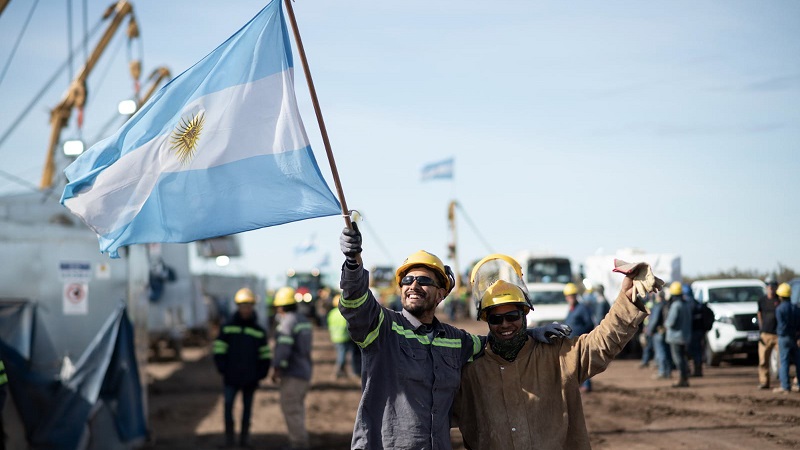Brussels and Buenos Aires agreed to work for a “stable delivery” of gas to Europe while cracking down on methane leaks and building renewables
The European Commission has signed a non-binding agreement with Argentina to facilitate a supply of liquefied fossil gas (LNG) to Europe in exchange for cooperation on green energy and Buenos Aires reigning in gas leakage.
Europe’s economic relations with Argentina are strong. Despite the geographical distance, EU investment in the country accounts for half of foreign investment. Similarly, the bloc is Argentina’s third-largest trading partner, behind Brazil and China.
While the more comprehensive trade agreement between the EU and its Latin American counterpart, Mercosur, flounders, von der Leyen agreed on a bilateral agreement with Buenos Aires on Monday (17 July). It follows a similar agreement on materials agreed in June.
“Europe and Argentina are partnering for a more secure, sustainable and prosperous world,” she said.
Ahead of elections, Argentina’s leaders wrap fossil fuels in the flag
The non-binding agreement hinges on four key aspects: hydrogen and its derivatives, renewables, energy efficiency, and liquefied natural gas (LNG).
With Russian gas flows into Europe at an all-time low, the two partners committed to “enabling a stable delivery of liquefied natural gas (LNG) from the Argentine Republic to the European Union.”
Argentina’s export dreams
The 45 million-strong country, which heavily relies on natural gas for its own energy consumption, is a serious player in the gas industry – bolstered by the rich shale gas stemming from Vaca Muerta in the South-West.
To export its fracked riches, Buenos Aires is working on a law to boost its LNG industry – with an eye to begin exporting at scale as early as 2027.
The agreement insists that supplying LNG will be “consistent with [the EU’s and Argentina’s] respective long-term decarbonisation objectives and consistent with the goals of the Paris Agreement.”
Australia will update the ‘fantasy’ net zero plan it inherited
Likely as a concession to Brussels, the agreement also insists that Argentina tackles its leaky gas wells. In 2022, at least one new gas well was drilled in Vaca Muerta per month.
Meanwhile, the formerly Argentina-based NGO Center for Human Rights and Environment warned in 2018 that at least 5% of produced gas was entering the atmosphere, often due to operators venting surpluses to maintain operational security.
“The Participants endeavour to reduce methane leakages in the fossil gas supply chain to the maximum technically feasible level,” the EU-Argentina agreement stresses, adding that new technologies should help tackle “venting and flaring.”
Both venting and flaring are commonplace methods of ensuring production equipment does not get damaged by too much fossil gas. Given methane’s extreme climate impact, it is 28 times worse than CO2 on a 100-year basis, uncontrolled venting is among the most climate-damaging by-products of producing fossil gas.
The agreement also points to integrating “recovered methane in
Read More

